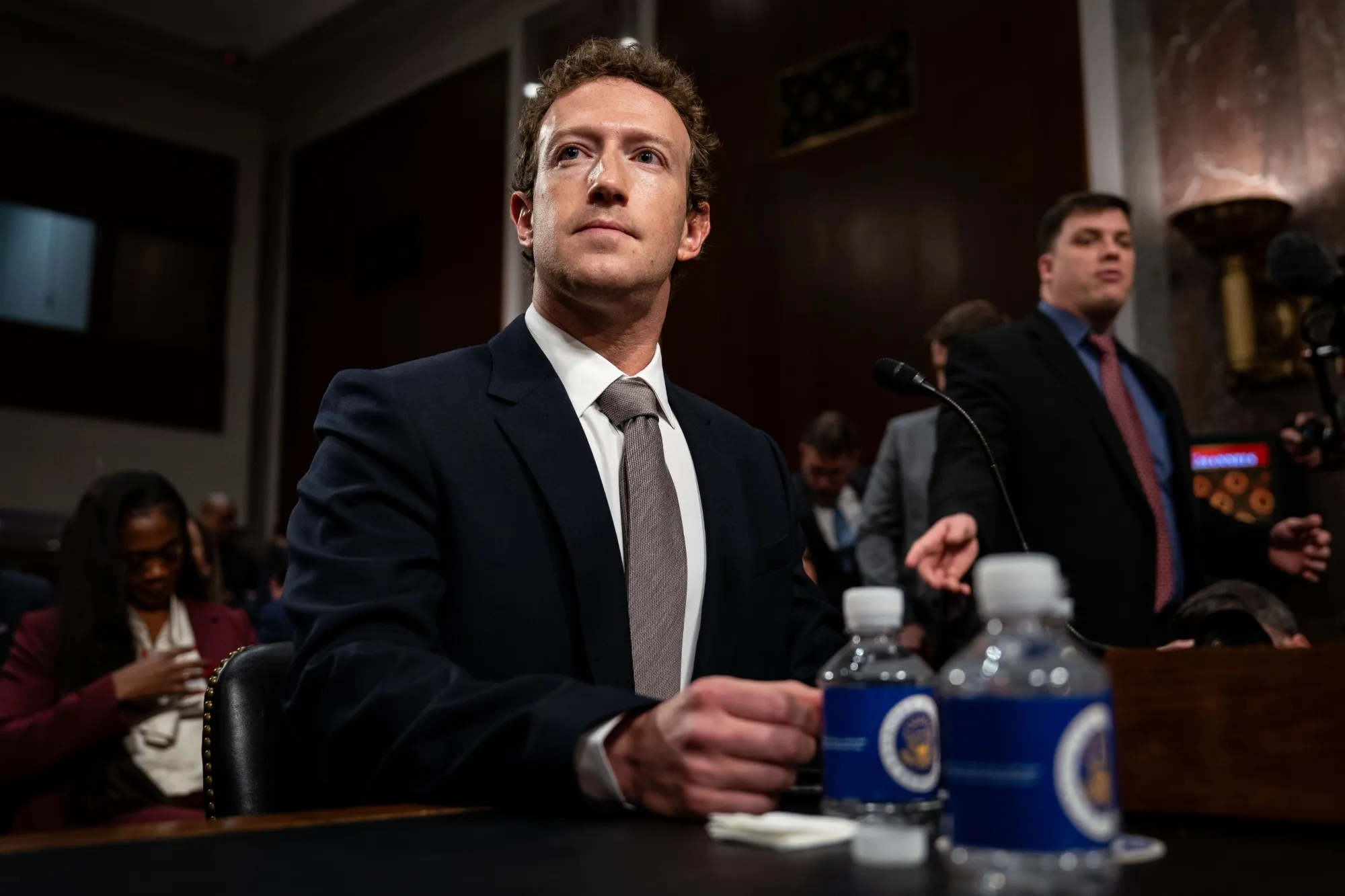On July 17, 2025, Mark Zuckerberg and a group of current and former Meta executives reached a Zuckerberg Meta $8bn settlement with shareholders in a high-profile privacy lawsuit. The plaintiffs accused the executives of failing to oversee Facebook’s data practices, citing a lack of compliance with a 2012 Federal Trade Commission order and the fallout from the Cambridge Analytica scandal. The resolution—to settle at nearly $8 billion—brought the case to a swift close just as courtroom testimony was about to begin.
While the settlement spares major figures like Zuckerberg, Sheryl Sandberg, and Marc Andreessen from testifying under oath, it raises pressing questions about accountability, board oversight, and the future of corporate governance in Big Tech.
Background: The Origins of the Privacy Lawsuit
The Zuckerberg Meta $8bn settlement stems from a shareholder derivative suit filed in 2018, alleging that Meta’s leadership breached fiduciary duties by overseeing—or ignoring—privacy violations. Plaintiffs pointed to the 2019 FTC fine of $5 billion, imposed after Cambridge Analytica harvested data from millions of users without consent. Investors sought compensation for this and other costs, totaling roughly $8 billion.
Despite the gravity of the claims, the trial was halted after just one day thanks to the settlement. Plaintiff attorney Sam Closic described the resolution as swift and unexpected. By avoiding public testimony, Zuckerberg and others dodged direct scrutiny—raising questions about transparency and accountability.
Corporate Governance and Accountability
The Zuckerberg Meta $8bn settlement highlights the fragile state of board oversight in digital-age corporations. The case was based on challenged “Caremark claims,” a rare and high bar for proving that directors failed to monitor and control corporate compliance adequately. It marked the first time such claims reached a courtroom.
Governance failures alleged in the lawsuit included ignored warnings from privacy officers, weak internal controls, and delays in addressing FTC mandates. Analysts see the settlement as evidence that boards may still evade personal accountability even in large-scale scandals.
However, the settlement also triggered governance reforms at Meta:
- A board-approved share buyback plan aimed to signal continued investment despite looming liabilities.
- Meta committed to bolstering its privacy framework and compliance protocols.
- The episode hints at growing pressure for more shareholder leverage in appointments, oversight, and accountability standards on major platforms.
Public Health of Tech and Shareholder Activism
The Zuckerberg Meta $8bn settlement has implications beyond Meta:
For Shareholder Activists:
The case represents evolving dynamics in investor activism. While winning settlements without testifying may seem anticlimactic, it demonstrates that sustained pressure can yield meaningful outcomes—even if accountability remains internal.
For Tech Sector Governance:
Regulators may monitor this settlement as they evaluate reform in board oversight for other Big Tech firms like Google and Amazon. Success here invites momentum for stronger enforcement of privacy duties across industries.
For Public Trust:
Critics argue the settlement misses a key moment for public reckoning. Without testimony, public insight into internal failures remains limited. Experts warn that the underlying problems—surveillance-driven culture and inadequate data ethics—have yet to be fully addressed.
Financial and Market Impacts
From a financial standpoint, the Zuckerberg Meta $8bn settlement serves dual purposes:
- Financial Prudence: By resolving the case, Meta avoids prolonged litigation costs and the possibility of a larger judgment.
- Investor Relations: The settlement may stabilize Meta’s stock price after volatility in recent quarters, signaling proactive risk management.
Analysts predict the settlement could pave the way for investment in privacy infrastructure, compliance technologies, and executive training programs—locking in lessons from the Cambridge Analytica era.
Lessons Learned and Path Forward
The Zuckerberg Meta $8bn settlement offers key takeaways:
- Caremark Claims Are Realistic Threats: Though rarely proven, such claims can drive significant settlements.
- Boards Can Escape Public Scrutiny: Agreements can halt trials, but deeper accountability might require structural reforms.
- Governance Momentum: Investors may now lobby for explicit fiduciary duty updates, including privacy liabilities.
- Regulatory Ripples: Agencies may strengthen oversight tools that empower shareholder-driven disclosure demands.
As Meta rebuilds its privacy reputation, the settlement’s true value will depend on whether leadership transforms internal culture, enhances data stewardship, and enforces consistent accountability.
Conclusion
The Zuckerberg Meta $8bn settlement ends one of the most prominent privacy accountability cases in modern corporate history, but it also opens a broader dialogue about governance in the digital age. While Meta sidestepped public testimony, the resolution highlights the growing power of shareholder action and the need for stronger prevention against data misuse.
To earn back public trust, Meta—and all large tech firms—must go beyond financial settlements. They need transparent culture change, robust oversight, and a true commitment to privacy ethics. The next test will not come from the courtroom but in how effectively Meta implements durable protections for user data—setting the standard for the future of tech governance.
Read More






 Saturday, 24-01-26
Saturday, 24-01-26







